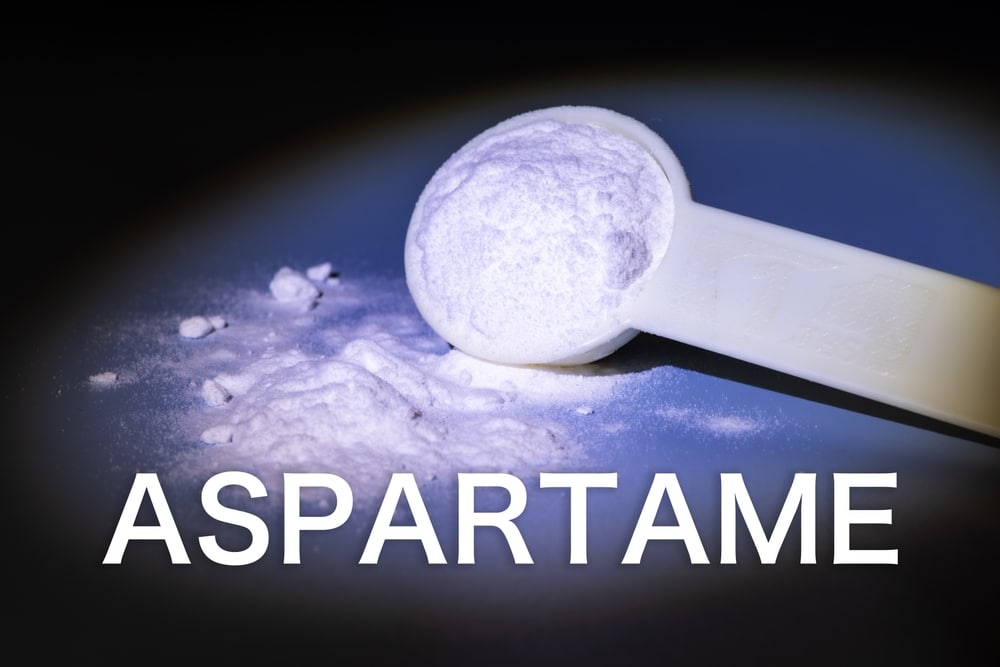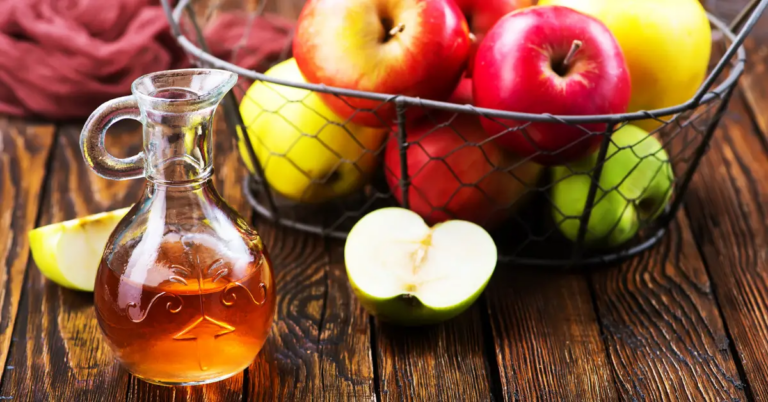In our pursuit of health and a leaner lifestyle, we often reach for what we believe are smarter choices, especially when it comes to our diet. Among these choices, artificial sweeteners like aspartame have been widely adopted, praised for their ability to cut calories without sacrificing sweetness.
However, recent research from the Florida State University College of Medicine casts a shadow over aspartame’s safety, suggesting that its effects may ripple through generations, impacting not just those who consume it but their offspring as well. This revelation prompts a deeper exploration into the legacy we’re leaving for future generations through our dietary choices.
The Hidden Cost of Sweetness
In our quest for a healthier lifestyle, many of us turn to sugar substitutes, with aspartame leading the charge as a popular alternative. Celebrated for its ability to keep our calorie intake in check, aspartame is found in everything from diet sodas to sugar-free desserts. This widespread use underscores a societal shift towards calorie-conscious eating habits, driven by a growing awareness of the obesity epidemic and its associated health risks.
However, recent findings from the Florida State University College of Medicine suggest this calorie-cutting companion might carry a legacy far beyond what we imagined. These studies hint at a ripple effect that could potentially impact the cognitive abilities of future generations. The research indicates that male mice, fed aspartame at levels considered safe by the Food and Drug Administration (FDA), exhibited significant deficits in learning and memory, particularly in spatial cognition. This alarming discovery raises questions about the long-term impacts of aspartame consumption on human health and cognitive function. [1]
It appears that the choice of aspartame, often made in the pursuit of health, could inadvertently be setting the stage for a series of unintended consequences. The potential for these effects to extend beyond the individual and impact offspring suggests a profound intergenerational concern. As we continue to navigate the complexities of dietary choices and their ramifications, the findings from such research invite us to reevaluate the safety and implications of aspartame consumption, not just for ourselves but for the sake of our descendants. This revelation is a stark reminder that the sweet life might come with a price we hadn’t anticipated, urging a cautious approach to artificial sweeteners. [2]
Unveiling the Ripple Effect: Aspartame’s Legacy
The discovery of aspartame’s potential to impair learning and memory functions in mice, as observed in the studies conducted by the Florida State University College of Medicine, unveils a concern that extends beyond individual health. The research meticulously showed that not only did the aspartame-fed mice experience cognitive deficits, but so did their offspring, indicating a possible heritable impact of aspartame consumption. This revelation is particularly startling, considering these effects were observed at aspartame intake levels deemed safe by regulatory standards.
The Intergenerational Concern
- Transmission to Offspring: The fact that the offspring of aspartame-fed mice also exhibited similar learning and memory deficits underscores an alarming possibility of intergenerational transmission. This suggests that the consequences of aspartame consumption could span beyond the immediate consumer, potentially affecting future generations.
- Cognitive Impacts: The specific deficits observed in spatial learning and memory among the mice highlight a critical area of concern regarding cognitive health. These findings raise pressing questions about the potential long-term cognitive effects of aspartame on humans, especially considering the widespread use of this artificial sweetener.
- Human Consumption Parallel: Drawing parallels between the doses administered to mice and the average human consumption of aspartame puts into perspective the relevance of these findings for our daily lives. While the direct translation of these results to humans requires further research, it invites a necessary reassessment of our dietary choices concerning artificial sweeteners.
The implications of this research are profound, urging a closer examination of aspartame’s safety and its potential heritable effects. As we continue to consume aspartame in various forms, the need for more comprehensive studies to understand its long-term impacts on human health and cognition becomes increasingly clear. This section of the narrative not only highlights the immediate concerns regarding aspartame but also emphasizes the urgent need for a broader dialogue about its place in our diets and its potential legacy for future generations.
Rethinking Aspartame: Beyond Immediate Effects
As the conversation around aspartame shifts from its immediate health impacts to its potential intergenerational consequences, the need for a deeper understanding of its effects becomes evident. The research pointing to cognitive deficits in both mice and their offspring after aspartame consumption introduces a complex layer of concern that transcends generations. This notion of heritable impacts compels us to consider not just what we ingest, but the legacy we leave behind for those yet to come.
The investigation into aspartame’s effects on cognition and behavior reveals more than just the potential for learning and memory impairments; it hints at underlying changes in brain chemistry and function. The anxiety-like behaviors observed in the study suggest that aspartame’s influence might extend into the realm of mental health, further complicating the narrative around its safety. These findings underscore the importance of scrutinizing the substances we consider safe and highlight the intricate relationship between diet, cognitive function, and emotional well-being. [3]
Moreover, the possibility that aspartame’s effects could be mediated through epigenetic mechanisms opens up new avenues for research and discussion. The idea that dietary choices could alter gene expression and have lasting effects across generations is a potent reminder of our responsibility to make informed decisions about what we consume. As we navigate the complexities of modern diets and food additives, the case of aspartame challenges us to look beyond the immediate benefits and consider the broader implications of our dietary choices, not only for our health but for the health of future generations.
Navigating Through Alternatives
In light of the concerns surrounding aspartame, it’s only natural to seek out safer, healthier alternatives for satisfying our sweet cravings. Fortunately, the search for substitutes has led to the discovery and increased availability of several natural sweeteners that offer the sweetness we desire without the potential health risks associated with aspartame and other artificial sweeteners.
- Stevia: A zero-calorie, plant-based sweetener that has gained popularity for its ability to sweeten foods and beverages without impacting blood sugar levels. Unlike aspartame, Stevia is derived from the leaves of the Stevia plant, offering a natural alternative for those looking to reduce their sugar intake without resorting to artificial options.
- Erythritol and Xylitol: These sugar alcohols provide a sweet taste with fewer calories than sugar and have a minimal effect on blood sugar levels. They are found naturally in fruits and fermented foods and are considered safe for consumption, although xylitol is toxic to dogs, so pet owners should use it with caution.
- Monk Fruit Sweetener: Extracted from the monk fruit, this sweetener is another natural option that is several times sweeter than sugar but does not raise blood sugar levels. It’s becoming increasingly popular as a healthy alternative to both sugar and artificial sweeteners.
- Natural Syrups and Honey: Agave nectar, pure maple syrup, and honey are natural sweeteners that also contain antioxidants and other beneficial nutrients. While they do contain calories and impact blood sugar levels, they can be used in moderation as a healthier alternative to refined sugar and artificial sweeteners.
By exploring these alternatives, individuals can make informed choices about how to sweeten their foods and beverages in a healthier, more natural way. It’s important to consider personal health needs and dietary restrictions when choosing an alternative sweetener, but with the variety of options available, there’s a suitable choice for almost everyone.

Reevaluating Our Dietary Landscape
As we stand at the crossroads of dietary choices and health outcomes, the debate surrounding aspartame serves as a critical reminder of the need for vigilance and informed decision-making. The mounting evidence and ongoing research into the potential adverse effects of aspartame on learning, memory, and possibly even cancer risk call for a broader public dialogue about what constitutes safe consumption. This dialogue is not just about aspartame but extends to the broader category of artificial sweeteners and processed foods that dominate modern diets. The convenience and immediate gratification offered by these products often overshadow the potential long-term health implications, making it imperative for individuals and communities to critically assess their dietary habits.
This reevaluation is not merely a question of replacing one ingredient with another; it’s about adopting a holistic approach to nutrition that emphasizes whole foods and minimizes the reliance on processed alternatives. While the allure of zero-calorie sweeteners and the promise of weight control are enticing, they may come at a hidden cost that is only beginning to be understood. The conversation around aspartame and its alternatives is emblematic of a larger issue: the need to prioritize long-term health and well-being over short-term dietary trends.
Ultimately, navigating the complexities of dietary choices requires access to clear, credible information and a willingness to adapt based on evolving scientific evidence. As researchers continue to uncover the nuances of how artificial sweeteners like aspartame impact human health, it is crucial for this knowledge to be disseminated widely, empowering individuals to make choices that align with their health goals and values. This journey towards a healthier dietary landscape is a collective one, involving not just individuals but also policymakers, healthcare providers, and the food industry, all working together to ensure that the quest for convenience and taste does not compromise our health and the health of future generations.

My Personal RX on Aspartame Consumption
As a doctor deeply committed to the principles of a healthy lifestyle and the well-being of my patients, the topic of aspartame consumption strikes a chord. The burgeoning evidence pointing to its potential adverse effects, especially concerning cognitive functions and its possible generational impact, requires a proactive approach to dietary choices. Understanding the body’s mechanisms and how they interact with what we ingest is pivotal in making informed decisions for ourselves and our families.
Navigating the world of sweeteners can be daunting, yet it’s imperative to prioritize health without compromising the joy of eating. Here are my personalized recommendations, integrating holistic health principles and practical tips, including how certain products can seamlessly support a healthier lifestyle:
- Moderation is Key: Before eliminating any food additive entirely, consider the principle of moderation. Understand your body’s responses and adjust your intake accordingly.
- Educate Yourself: Use resources like the Protocol Guide to empower your dietary choices. This guide offers invaluable insights into holistic health, providing a foundation for making informed decisions that affect your and your family’s well-being.
- Seek Natural Alternatives: Favor natural sweeteners over artificial ones. Sweeteners like stevia, monk fruit, and xylitol can offer the sweetness you crave without the potential risks associated with aspartame.
- Boost Cellular Health: Products like Mitochondrial Energy can enhance your body’s cellular energy production, offering a natural energy boost without relying on sugar or artificial sweeteners. This can be especially beneficial for maintaining vitality and overall health.
- Hydrate Smartly: Choose water or infused water over diet sodas. If you crave something sweet, a splash of natural juice or slices of fruits in water can be refreshing alternatives.
- Read Labels Carefully: Be vigilant about food labels to avoid unintentional consumption of aspartame. Even products not explicitly marketed as “diet” or “low calorie” can contain artificial sweeteners.
- Enhance Your Diet with Antioxidants: Consuming foods high in antioxidants can support your body’s detoxification processes. Berries, nuts, and green vegetables are excellent sources.
- Support Immune Function: A diet rich in fruits, vegetables, and quality proteins can support immune function. Supplements designed to enhance immune function can be beneficial, especially in times of stress or during flu season.
- Prioritize Whole Foods: Emphasize whole, unprocessed foods in your diet. These foods are naturally free of aspartame and other artificial sweeteners, offering a wealth of nutrients without unnecessary additives.
- Stay Informed: As research evolves, so too should our dietary practices. Stay updated on the latest findings regarding aspartame and other food additives to make choices that best support your health and longevity.
Remember, the path to optimal health is not about deprivation but about making smarter, more informed choices that align with your body’s needs and your health goals.

Sources:
- Haughney, K. (2023, September 18). College of Medicine researchers discover learning and memory deficits after ingestion of aspartame – Florida State University News. Florida State University News. https://news.fsu.edu/news/health-medicine/2023/09/18/college-of-medicine-researchers-discover-learning-and-memory-deficits-after-ingestion-of-aspartame/
- Nutrition, C. F. F. S. a. A. (2023, July 14). Aspartame and other sweeteners in food. U.S. Food And Drug Administration. https://www.fda.gov/food/food-additives-petitions/aspartame-and-other-sweeteners-food
- Choudhary, A. K., & Lee, Y. Y. (2017). Neurophysiological symptoms and aspartame: What is the connection? Nutritional Neuroscience, 21(5), 306–316. https://doi.org/10.1080/1028415x.2017.1288340



















